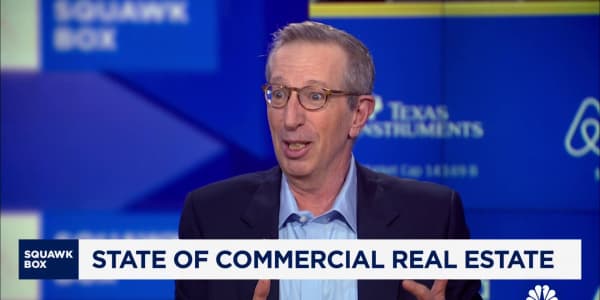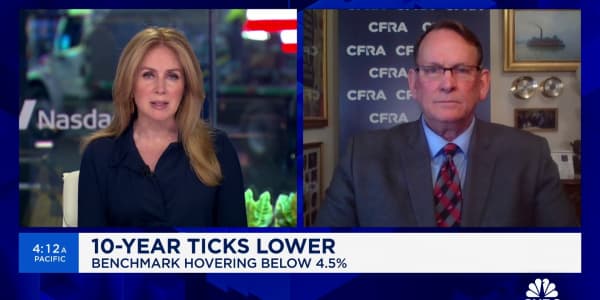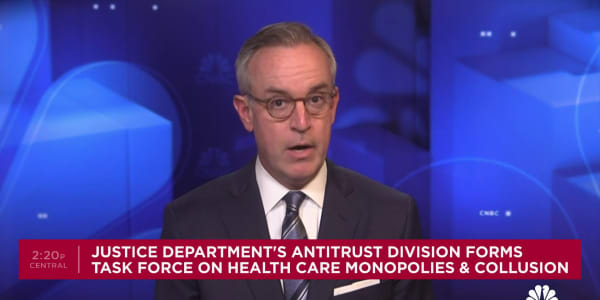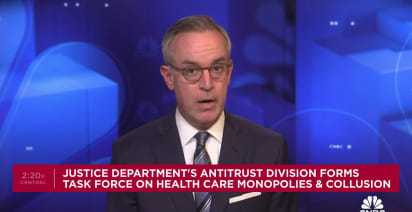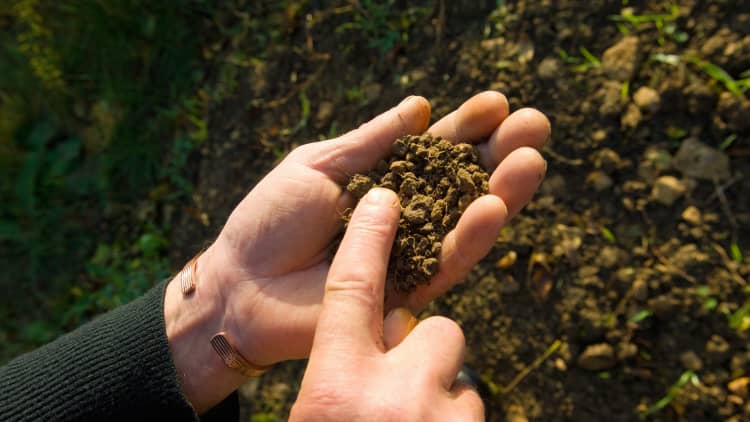
Behind the looming soil shortage
The United Nations declared soil finite and predicted catastrophic loss within 60 years. The world needs soil for farming, water filtration, climate mitigation, ecosystem services, health care and more.
The impact of soil degradation could total $23 trillion in losses of food, ecosystem services and income worldwide by 2050, according to the United Nations Convention to Combat Desertification.
The major causes for soil degradation include unsustainable agricultural practices, overgrazing, deforestation and improper land use.
According to the U.N., soil erosion may reduce up to 10% of crop yields by 2050. That's like removing millions of acres of farmland.
"Soil is the habitat for over a quarter of the planet's biodiversity. Each gram of soil contains millions of cells of bacteria and fungi that play very important role in all ecosystem services," Reza Afshar, chief scientist at the regenerative agriculture research farm at the Rodale Institute, told CNBC.
The Rodale Institute, the birthplace of modern organic agriculture, is home to the longest-running side-by-side comparison of organic and conventional grain cropping systems in North America. The research has found regenerative, organic agriculture produces yields up to 40% higher during droughts, can earn farmers greater profits and releases 40% fewer carbon emissions than conventional agricultural practices.
How's that possible? The Rodale Institute says it all starts with soil.
Watch the video above to learn more about why we're facing a silent soil crisis, how soil can be saved and what that means for the world.


